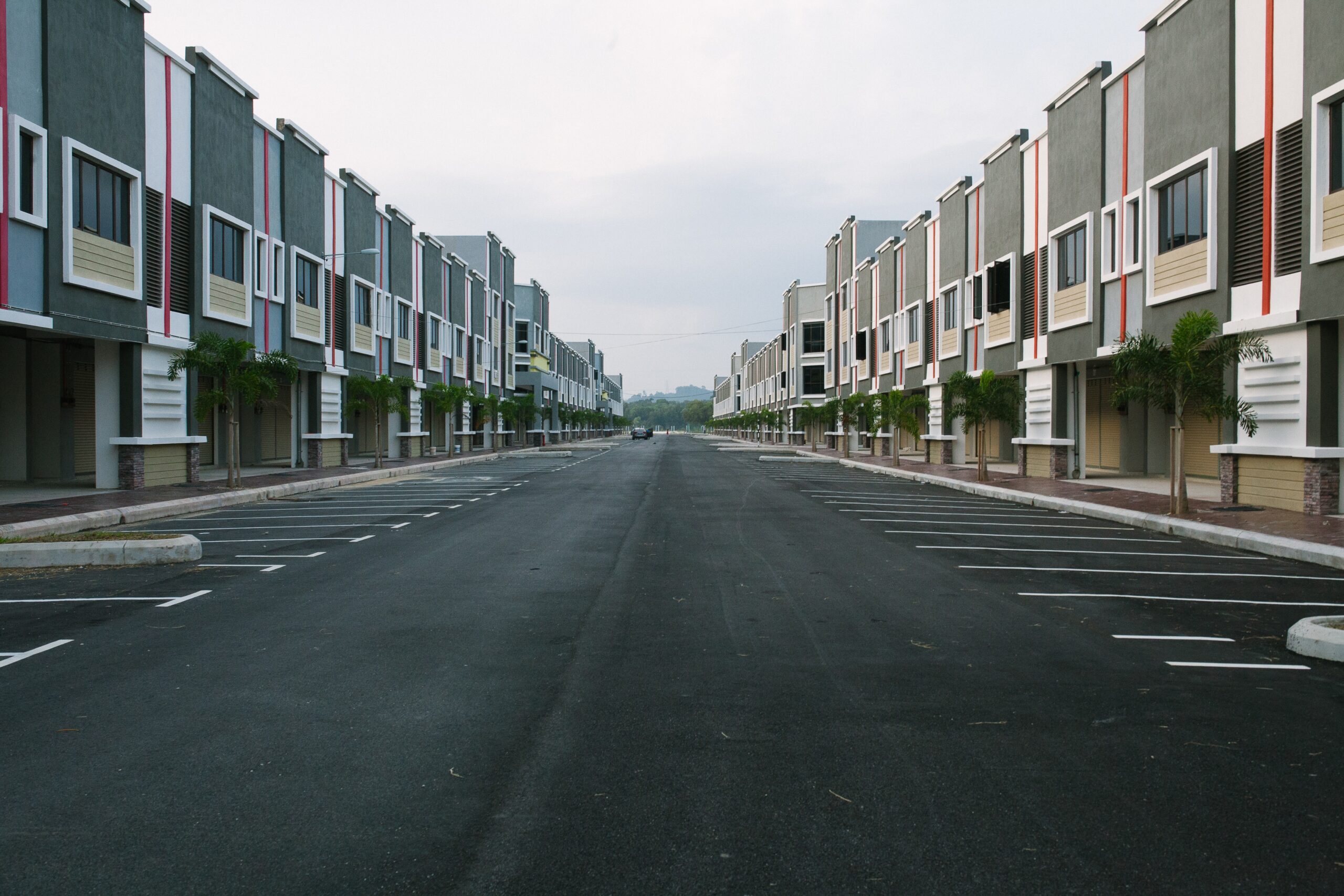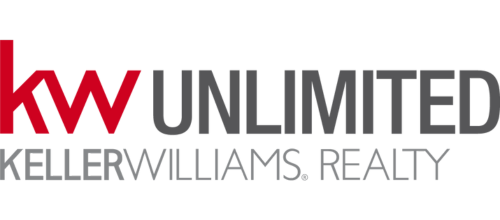
Purchasing a new home is an exciting milestone for first-time buyers, but it can also be a stressful endeavor, especially when considering the various housing options available.
Two popular choices that often generate confusion are townhomes and condos. While they may appear similar, there are distinct differences that can greatly impact your living experience.
In this article, we’ll dive into the details of both housing options to help you make an informed decision without stressing over the purchase process.
The Difference Between a Condo and a Townhouse
Townhomes
Townhomes, also known as townhouses, are multi-level residential units that share walls with neighboring properties. These homes are individually owned and often have a small yard or patio area. One significant advantage of townhomes is that they provide more autonomy and a sense of ownership compared to condos.
As a townhome owner, you have rights to a portion of the land, including the front and backyard, giving you the freedom to make modifications as per your preferences. Additionally, townhomes often offer direct access to the street, making them more akin to a single-family home in terms of entry and privacy.
In terms of maintenance and responsibilities, townhome communities often have homeowners’ associations (HOAs) that oversee common areas, such as clubhouses, playgrounds, or shared outdoor spaces.

HOAs typically collect monthly fees to cover maintenance costs, preserving the exterior appearance of the community. As a townhome owner, you’ll have to abide by the HOA regulations, which can include restrictions on property modifications or exterior aesthetics. However, this also ensures that the neighborhood maintains a certain standard, protecting property values.
Condos
Condos, short for condominiums, are similar to apartments in layout and structure. These residential units are usually part of a larger building or complex, and ownership is focused on the interior space, rather than the land it stands on.
One of the primary advantages of buying a condo is the reduced responsibility for maintenance and upkeep. Typically, the condo association takes care of common areas, building exteriors, landscaping, and utilities.
This can be a huge relief for first-time buyers who don’t want to deal with yard work or extensive repairs.
Living in a condo often means sharing walls, floors, and ceilings with neighbors. While this allows for a sense of community and often additional amenities such as gyms or swimming pools, it can also result in less privacy compared to townhomes. However, some condos offer various levels of soundproofing and security measures to offset this potential drawback.
Another key aspect of condos is that they often come with monthly condo fees. These fees cover the expenses of maintaining shared spaces, building insurance, and utilities. It’s essential to understand these fees and their potential impact on your budget before deciding if a condo is the right choice for you.
Advantages & Disadvantages living in Condominium or Townhome
Choosing between a townhome or a condo depends on your lifestyle, budget, and preferences. Educating yourself about the differences between townhomes and condos is crucial to finding the perfect home without unnecessary stress.
Consulting with real estate professionals, such as agents or brokers, can provide valuable guidance throughout the purchasing process. Take the time to consider your preferences, financial situation, and long-term goals before making a decision that will shape your homeownership experience.
Condominium
Advantages
- Convenience: Condos often offer convenient locations, close to amenities such as shopping centers, restaurants, and public transportation.
- Low maintenance: Condo owners typically have shared responsibility for maintenance tasks like lawn care and exterior repairs.
- Amenities: Many condos provide access to amenities like swimming pools, fitness centers, and common areas that residents can enjoy without the need for upkeep or additional costs.
- Security: Gated entrances, security personnel, and surveillance systems can contribute to a sense of safety within the condominium community.
- Affordability: In some cases, condos may be more affordable than townhomes due to lower purchase prices or reduced monthly expenses.

Disadvantages
- Limited control over modifications: Most condo communities have rules and regulations that restrict how much an owner can alter their individual unit’s appearance or layout.
- Shared spaces and noise concerns: Close proximity to neighbors means there may be increased noise levels from neighboring units or common areas. Sharing facilities like elevators or parking lots might also pose occasional inconveniences.
- Monthly fees: Most condo associations require regular monthly fees that cover communal expenses but could add significantly to homeownership costs.
Townhome
Advantages
- More control over living space: Townhome owners generally have greater autonomy when it comes to modifying their property’s interior design compared to condo dwellers who must adhere strictly to association rules concerning alterations.
- Privacy: Typically having fewer adjacent neighbors than condos enables townhome residents better privacy options within the comfort of their own home.
- Yard ownership potential: Some townhomes come with private yards allowing for outdoor activities such as gardening or hosting gatherings.

Disadvantages
- Maintenance responsibilities*: Compared with condos where maintenance tasks are usually outsourced collectively through association dues; townhome owners often shoulder sole responsibility (unless part of an HOA) for lawn care, exterior repairs, and other property maintenance.
- Potentially limited amenities: Townhome communities may not offer as many shared facilities or recreational areas compared to condos which frequently provide a range of in-house amenities to residents.
- Higher price point*: Owing to increased privacy, additional space, and potential yard ownership capability depending on the location; townhomes can sometimes have higher price points relative to similar-sized condos.
*Note that this disadvantage is dependent on specific circumstances such as whether there is an HOA (Homeowners Association) responsible for exterior maintenance and associated fees/townhome market conditions where lower-priced options might be available.
Final Thought
Choosing between townhomes and condos can be daunting for first-time home buyers. By understanding the differences between these two options, you can make a well-informed decision that aligns with your lifestyle, preferences, and budget.
Each choice offers unique advantages and considerations, from greater autonomy and property ownership in townhomes to reduced maintenance responsibilities and a strong sense of community in condos.
By thoroughly examining your needs and consulting with experts, you’ll find a home that suits your vision and ensures a stress-free purchasing experience.
FREQUENTLY ASKED QUESTIONS
1. What is the difference between a townhome and a condo?
A townhome, also known as a townhouse, is a multi-level home that usually shares one or two walls with neighboring units. It typically has its own entrance, yard, and often includes amenities such as a garage. On the other hand, a condo, short for condominium, is a type of housing where individuals own their unit but collectively own the common areas and amenities with other residents.
2. What are the advantages of owning a townhome?
Owning a townhome offers several advantages. Firstly, townhomes often provide more space compared to condos, making them suitable for families or individuals who desire more room. Additionally, townhomes typically have more privacy than condos since they share fewer walls and may have individual outdoor areas. Townhomes also offer more control and flexibility in terms of customization and remodeling.
3. What are the benefits of owning a condo?
Condos come with their own set of advantages. One of the major benefits is the low maintenance lifestyle they offer. Condo associations typically handle the maintenance and upkeep of common areas, amenities, and exterior structure, which can be a relief for those who prefer not to engage in these tasks. Condos often provide access to shared facilities like gyms, swimming pools, or community spaces. They can also be more affordable than townhomes, making them a suitable choice for first-time buyers or individuals seeking a more urban lifestyle.
4. Are there any drawbacks to owning a townhome?
There are a few potential drawbacks to owning a townhome. One of the main concerns is the potential for noise transfer between units due to shared walls. Townhome owners may also have a higher degree of responsibility for maintenance and repairs than condo owners since they typically have individual yards and exteriors. Some townhome communities may have homeowner association (HOA) fees and regulations that govern property usage and appearance, which can be seen as a disadvantage by some.
5. What are the drawbacks of owning a condo?
Owning a condo has its own set of potential drawbacks. Some buyers may find the shared living spaces and common areas limiting in terms of personalization and privacy. Condo owners often have less control over building decisions compared to townhome owners. Additionally, condo association fees, which cover maintenance and shared expenses, can be a financial burden for some. It’s essential to carefully review the HOA rules and fees associated with a condo before making a purchase.
6. Which option is better for investment purposes, a townhome or a condo?
Both townhomes and condos can be profitable investments, but the choice depends on various factors such as location, market demand, and individual preferences. Townhomes generally offer more potential for appreciation due to their individuality and often desirable features like garages. On the other hand, condos can be attractive to investors seeking a passive income as they are often in high-demand urban areas. Conduct thorough market research, analyze rental potential, and consider long-term goals when deciding which option would be better for investment purposes.
7. How do I determine if a townhome or condo is the right fit for me?
When deciding between a townhome and a condo, consider various factors such as your lifestyle, financial situation, and personal preferences. Evaluate your space requirements, desired level of privacy, willingness to participate in maintenance duties, and the importance of amenities and community involvement. It’s also crucial to consult with a real estate professional who can provide guidance based on your specific needs and market conditions.
Remember, these FAQs are provided for informational purposes only. For a comprehensive understanding of townhome and condo ownership, it is recommended to consult with Maurice Barnes to address your specific needs.


